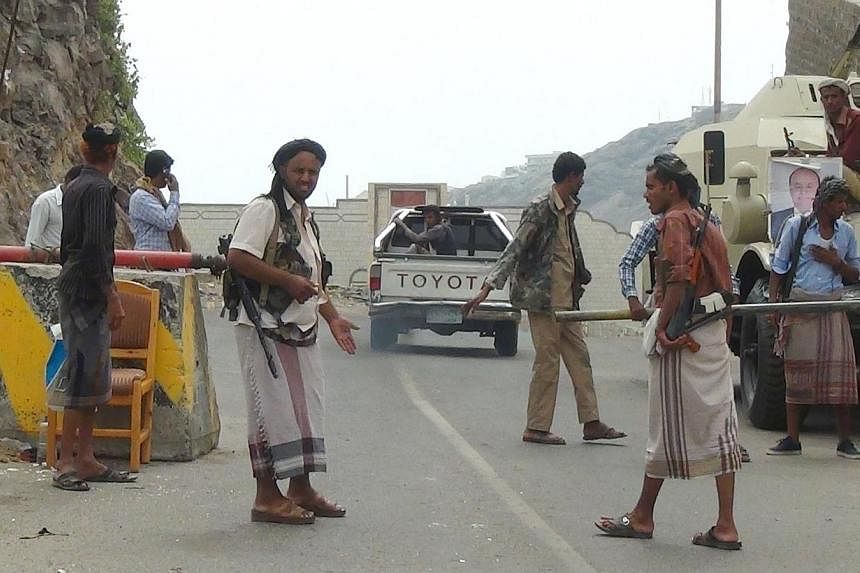ADEN (AFP) - A French woman working in Yemen was kidnapped on Tuesday as President Abdu Rabu Mansour Hadi struggled to reassert his authority in the crisis-hit Arabian Peninsula nation.
US Secretary of State John Kerry said, meanwhile, that Iran had contributed to the collapse of the government's authority in Yemen, where a Shi'ite militia has seized the capital Sanaa.
The French woman, who was working for an international organisation in Sanaa, was abducted on Tuesday morning, France's foreign ministry said, urging all French citizens "to leave the country as fast as possible".
Western nations including Britain, France and the United States closed their embassies in Yemen this month and urged their citizens to leave over security concerns.
President Francois Hollande called for the woman to be released "as soon as possible", saying she was a 30-year-old working with the World Bank.
A Yemeni security source said gunmen seized the woman and her local guide while they were riding in a taxi in the centre of the capital.
Yemen has descended into chaos since the militia, known as Huthis, swept into Sanaa from their mountainous northern stronghold last year.
The Huthis overran Sanaa in September and installed a "presidential council" this month after Hadi and Prime Minister Khalid Bahah tendered their resignations.
Hadi retracted his resignation on Tuesday after escaping house arrest in Sanaa, staking a claim to lead the country out of crisis.
He made his surprise escape on Saturday and resurfaced in Aden, capital of the formerly independent south Yemen, where he has attempted to resume his duties and branded all measures adopted by the Huthis "null and illegitimate".
An aide to Hadi said the 69-year-old had sent a letter withdrawing the resignation to parliament, which had never met to formally accept it.
Hadi urged lawmakers to cooperate with him "to normalise the security and economic situation in all provinces" in the letter, a copy of which was seen by AFP.
IRAN SUPPORT 'CRITICAL'
Hadi also called on government ministers to "head immediately to Aden to convene," the aide said.
Bahah, the prime minister, remains under house arrest in Sanaa along with other ministers and officials.
In an angry riposte, the Huthis urged countries to avoid dealing with Hadi, who they said would face legal action.
Critics have accused predominantly Shi'ite Iran of backing the Huthis in a bid to destabilise Yemen, strategically located south of oil-rich Saudi Arabia and along key maritime shipping routes.
Speaking to US lawmakers in Washington, Kerry said Iran's support for the Huthis "contributed" to the government's collapse.
He said Teheran's backing was "critical" to the militia, but he added that Iranian leaders appeared to have been "surprised" by events in country and "are hoping to see a national dialogue" take place.
On Monday, Sunni Gulf monarchies, long wary of Iran's alleged support for the militia, urged Yemenis to "stand by the president and support him... in order to end Yemen's dangerous situation caused by Huthis".
Analysts said Hadi's re-emergence was likely to confuse the situation even further.
"Hadi's return to the (political) game has generated confusion which the international community will have trouble sorting out," said Laurent Bonnefoy, a Yemen expert and political science professor at Sciences Po in Paris.
Given that Hadi is a Sunni and from the south, it could deepen the country's north-south division and its sectarian fault lines, he said.
The Huthis have pushed their advance south and west into mainly Sunni areas, where they have met with fierce resistance from tribesmen and Yemen's powerful branch of Al-Qaeda.
Hadi became president in 2012 after longtime strongman Ali Abdullah Saleh was forced from power by a year-long uprising.
The continued chaos has raised fears that Yemen - a key US ally that has allowed Washington to carry out a longstanding drone war against Al-Qaeda - will collapse into a failed state fuelling regional instability.

